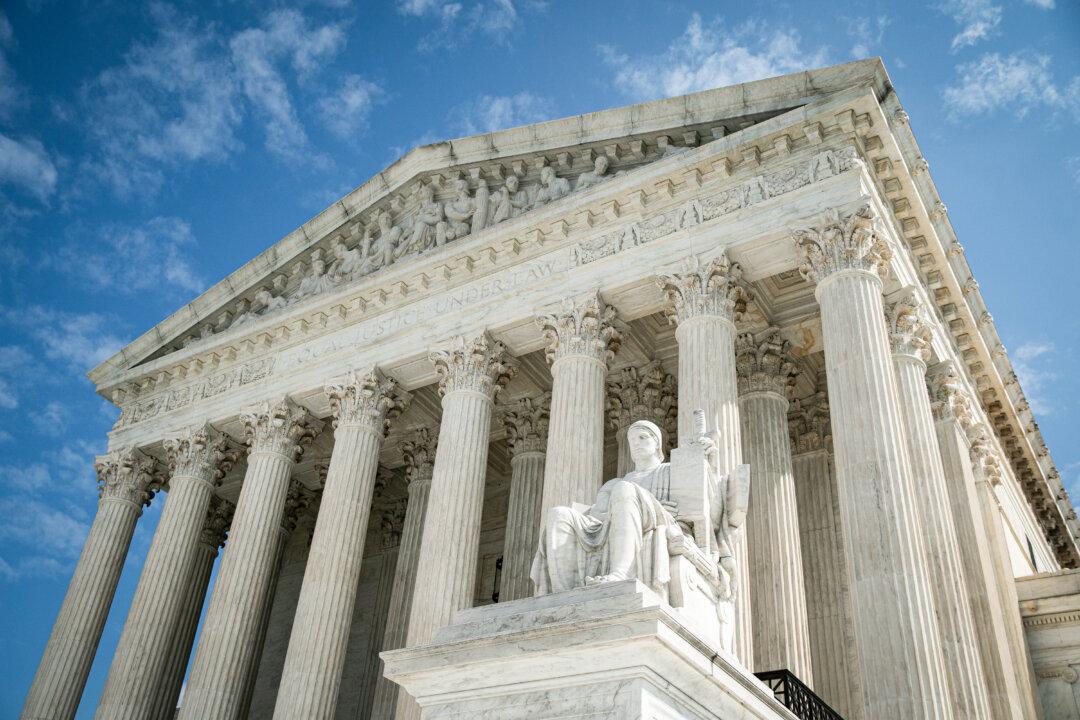The U.S. Supreme Court has declined to hear a lawsuit from Republican-led states challenging the Biden administration’s attempt to assign a social cost to carbon—a foundational element to all life.
Supreme Court Rejects GOP States’ Challenge to Biden’s Rule Estimating Social Cost of Carbon
GOP concerns about the federal regulation of carbon—a foundational element to all life—will not be heard by the Supreme Court.

“The Guardian” or “Authority of Law" statue by James Earle Frasier in front of the U.S. Supreme Court in Washington on Sept. 28, 2020. Al Drago/Getty Images




